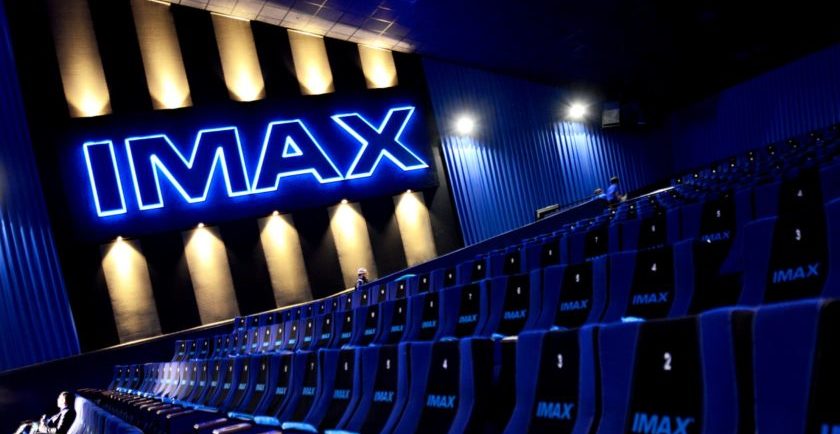M+E Connections

IMAX CEO: Strong Content Will Decide VR Winners
Story Highlights
It may still be the early days for virtual reality (VR) and it remains to be seen who the big winners will be in the space, but the creation of strong content will go a long way toward figuring that out, according to IMAX CEO Richard Gelfond.
It’s not even clear yet what kind of VR experience will be the most popular among games, movies and eSports, he told the Deutsche Bank Media & Telecom Conference in Palm Beach, Fla., March 6. “That’s undecided. So, we’re building kind of this agnostic platform and we’re going to incorporate elements [wherever] VR goes,” he said.
As part of its VR initiatives, the company is opening IMAX Virtual Reality Centres where consumers can experience VR content, and completed the initial phase of a $50 million VR fund with strategic investors that include China Media Capital and Creative Artists Agency. IMAX also recently announced content deals with French video game company Ubisoft and the Skydance Interactive division of Skydance Media to release five VR games at the IMAX VR locations. On the hardware front, IMAX already partnered with HTC, Google and Acer.
IMAX and Google said May 19 that they were developing a “cinema-grade” IMAX VR camera to create 3D 360-degree content. IMAX said one day later it teamed with Starbreeze to create a “premium” VR experience using the StarVR headsets that provide a 210-degree full peripheral field of view. As part of that deal, Starbreeze is making its existing library of VR games available to IMAX VR Centres.
“We’re trying to be in a position where we could benefit from the growth of VR without necessarily having to predict” what kind of content and experiences will become the most successful, Gelfond told the conference. One IMAX goal is for its Centres to have the best VR headsets and computing power to provide consumers with the best experience possible, he said.
But Gelfond said that, on a “long-term” basis, “it’s going to be the content” that determines the future of the VR market, adding: “I just don’t think anybody has really nailed the content yet.”
The $50 million raised by the VR fund “isn’t going to pay for the content,” he went on to say. But he told the conference that the Hollywood studios are already developing their own VR content. He pointed to the VR content created by “The Martian” director Ridley Scott that tied into that movie, as well as Transformers VR content that is being developed by filmmaker Michael Bay, whose movie “Transformers: The Last Knight” is scheduled to be released theatrically June 23.
IMAX already opened the first of six planned pilot VR Centres, in L.A. During the company’s Feb. 23 earnings call, Gelfond said the company was encouraged by early results and it attracted more than 7,000 attendees since opening Jan. 6.
The VR Centre in L.A. is located across the street from The Grove shopping center, Gelfond said at the conference, adding IMAX had contracts to open five additional locations: one each in New York, Tokyo, China, the Middle East and Europe. “Over the next couple of months, we’ll open those and we’re going to monitor the results,” he said. “If it works, we’ll roll it out on a much bigger basis.”
He noted that IMAX hasn’t made a significant investment in VR yet, and told the conference: “I think longer-term, it’s very exciting. There’s lots of opportunities, but we’re going to do it in a measured way.”
Gelfond was also asked about the possibility of a premium video on demand (VOD) window being created over the next few years, and how that could impact IMAX if it happened. “I don’t think it’ll have a big impact on us” because many moviegoers will continue to want to see the event-type movies typically shown at IMAX theaters on those same movie screens, regardless of any change in VOD windows, he said.
But Gelfond said he was recently in L.A., and “there was a lot of discussion” about that subject, “both from the studio side and from the exhibitor side – more discussions than I’ve heard in a while.” As a result, he said: “I do think, over the next several years, there will be changes in the windowing. I’d be surprised if there weren’t. But I don’t think it’s going to be as near-term as some recent press reports [indicated]. I think it’s a ways away.”
He also said at the conference that the 20th Century Fox/Marvel Entertainment movie “Logan” took in $20 million in its opening weekend on IMAX theater screens. That’s 8.5% of the world’s box office and “one of the highest percentages we’ve had” for the opening weekend of a movie, he said. Gelfond also expressed optimism about this year based on the “very promising” film slate.
Earlier in the day at the conference, Neil Smit, CEO and president of Comcast Cable, said his company was “going to continue to drive the growth of its video business” in 2017. Video subscriber growth gave Comcast a lift in the fourth quarter, it had said in January.
Comcast’s X1 video platform “has been a real advantage for us,” including when it comes to competition from new over-the-top (OTT) services, he told the conference. X1 is “very competitive” with OTT offerings so far, in part due to its “unprecedented quality of service,” he said.
While there “have been some problems,” he said, with the technology used by at least certain OTT providers, Comcast’s technology is “well-developed and established.”
X1 also provides an “unprecedented quantity of content” that includes all local and live content, unlike OTT providers, he said. X1’s content includes 100,000 VOD choices as well, he said, adding: “We’ve been competing for years. We know how to compete.”









